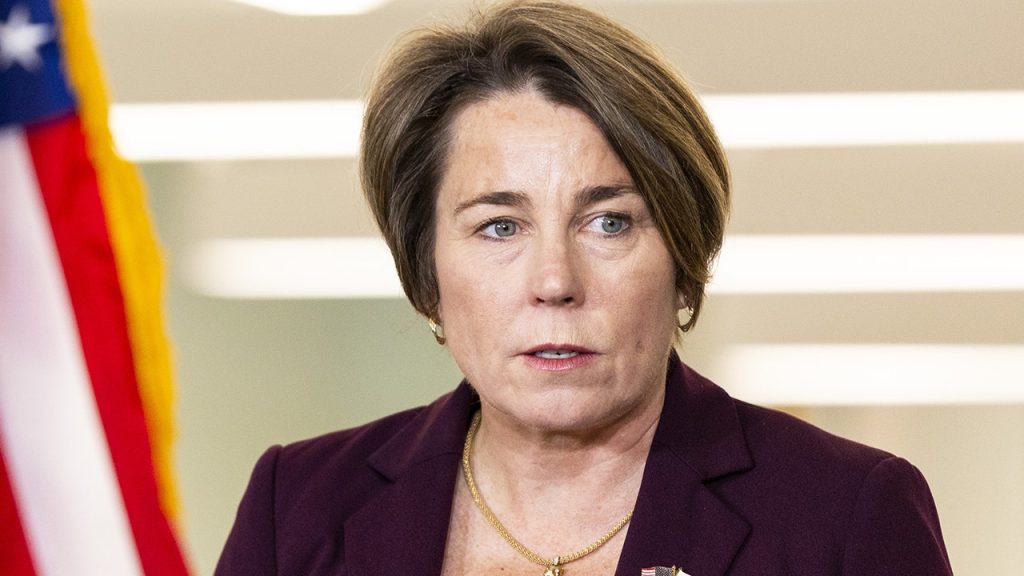The Commonwealth of Massachusetts finds itself grappling with a substantial financial burden stemming from the mismanagement of federal pandemic relief funds under the previous administration. Former Governor Charlie Baker’s administration erroneously utilized approximately $2.5 billion in federal funds intended for pandemic relief to cover unemployment benefits, a cost that should have been borne by the state. This misstep has resulted in a significant debt to the federal government, initially calculated to exceed $3 billion including accrued interest and penalties. Current Governor Maura Healey, who assumed office in 2023, inherited this complex fiscal challenge and has been working to mitigate its impact on the state’s finances and its residents. Negotiations with the U.S. Department of Labor have yielded a settlement agreement, reducing the total debt to $2.1 billion, payable over the next ten years.
The revelation of this financial mismanagement has prompted criticism of the previous administration and sparked a broader discussion about necessary reforms to the state’s unemployment insurance system. Governor Healey has expressed frustration over the situation, emphasizing the need to learn from this experience and implement measures to prevent similar occurrences in the future. The settlement agreement, while reducing the overall debt, still presents a significant financial obligation for the state. Payments are scheduled to commence on December 1, 2024, and will continue annually for a decade. The repayment plan stipulates that principal payments must be drawn from the Unemployment Insurance (UI) Trust Fund, which is primarily funded through employer contributions, while interest payments will be covered by the state’s General Fund.
The allocation of principal payments to the UI Trust Fund raises concerns about the potential impact on businesses, which already face increased costs due to the surge in unemployment claims during the pandemic. To address these concerns, Governor Healey has committed to exploring reforms to mitigate the burden on employers. She has directed key members of her administration, including the Secretary of Labor and the Secretary of Administration and Finance, to conduct a thorough review of the UI system’s solvency and propose potential reforms. This review will aim to ensure the long-term stability of the UI Trust Fund and minimize the financial strain on businesses.
The financial implications of this settlement are substantial and require careful management to avoid further exacerbating the state’s fiscal challenges. The Healey administration has projected that the UI Trust Fund would face a deficit of hundreds of millions of dollars by the end of 2028, even before factoring in the $2.1 billion debt repayment. This projection underscores the urgency of implementing comprehensive reforms to stabilize the UI system and ensure its long-term viability. The administration’s commitment to reviewing and reforming the system is a crucial step in addressing this looming fiscal crisis.
The settlement agreement represents a significant step towards resolving the financial fallout from the previous administration’s mismanagement of federal funds. However, the long-term consequences of this incident remain a concern. The state must navigate the delicate balance between fulfilling its financial obligations and mitigating the impact on businesses and the overall economy. The success of these efforts will depend on the effectiveness of the proposed UI system reforms and the state’s ability to manage its finances prudently in the coming years.
This incident serves as a stark reminder of the importance of responsible fiscal management and the potential consequences of misallocating public funds. The Healey administration’s commitment to transparency and accountability in addressing this issue is commendable and sets a positive precedent for future governance. The ongoing efforts to reform the UI system will be crucial not only for resolving the current financial crisis but also for ensuring the long-term health and stability of the state’s economy. The lessons learned from this experience should inform future policy decisions and strengthen the state’s financial management practices to prevent similar incidents from occurring again.

